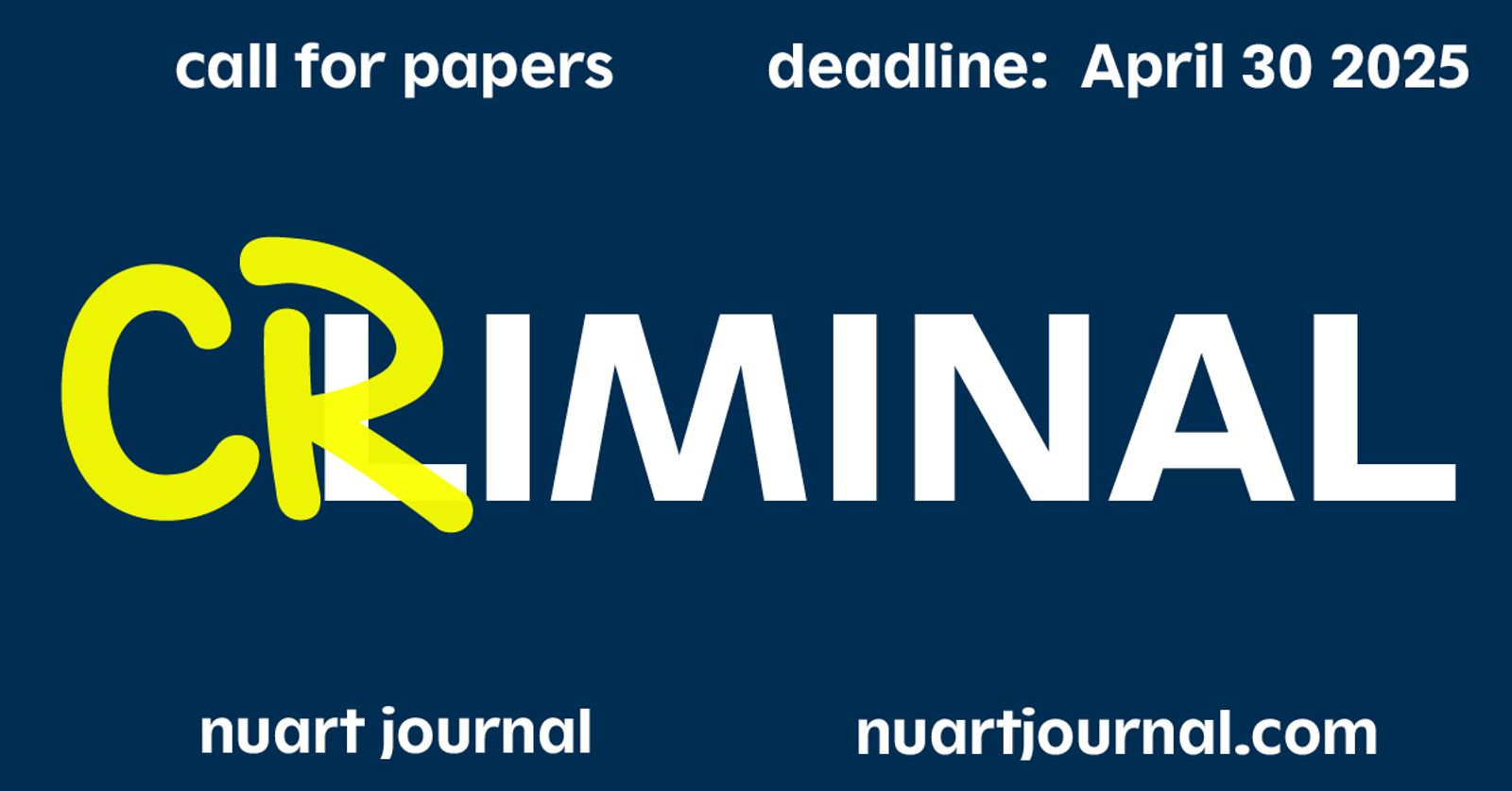true
NUART JOURNAL CALL FOR PAPERS
ISSUE IX: CRIMINAL/LIMINAL
DEADLINE: APRIL 30 2025
Read More
NUART JOURNAL CALL FOR PAPERS
ISSUE IX: CRIMINAL/LIMINAL
DEADLINE: APRIL 30 2025
This call for papers seeks submissions on the theme of CRIMINAL/LIMINAL.
Street art and graffiti are often defined with reference to the art/crime nexus. Older understandings of illicit art on the streets regularly framed it in criminological terms, often with reference to the now discredited broken windows theory. However, as Jeff Ferrell notes, this older understanding now coexists with a growing appreciation of street art and graffiti as ‘artistic undertakings’:
‘Street art and graffiti can be defined as criminal threat, or as artistic undertaking and commercial opportunity… they can lead some of their practitioners to prison, and others to the gallery… with the first more likely to seek a good defense attorney, and the second a skilled copyright lawyer.’
The public reception of graffiti and street art also reflects a shift in socio-moral norms. Urban communities now often regard art in public space as a prosocial ‘gift’ and not as criminal damage. Indeed, people increasingly perceive liminally legal actions (such as removing street art for private auction, eradicating a popular hall of fame, or appropriating street art and graffiti to sell products) as forms of ‘criminal’ activity.
With street art and graffiti now recognised as bona fide art forms, should we resist this becoming a purely art historical narrative? What role does ‘criminality’ continue to play in the life of graffiti and street art? Is the risk of ‘getting caught’ still central to the thrill of illicit artistic activity?
For graffiti writers, the answer is probably yes, but for ‘street artists’ and muralists, it’s more complicated. And when we factor in intersectionality, politics, and vulnerabilities, it gets even more knotty. Thrill is ever relative to risk, and for some of us (i.e., non cis-white-straight male artists/writers) the very real risk of violence and harassment may outweigh the thrill of illicit art on the streets in practice.
But is there is a ‘third way’ that might defeat this art/crime binary? There is a manifold of hidden spaces in the city that exemplify Clement’s productive third landscapes – and the sense of relative safety that comes with working in ‘invisible’ and temporarily abandoned structures. Painting in derelict forgotten spaces isn’t generally prosecuted, but yet it isn’t exactly legal, so creative practice here arguably remains liminar – indeed, it exceeds street/gallery; art/crime dichotomies.
Graffiti and street art are rapidly evolving socio-legal-artistic phenomena that surpasses the purview of any one discipline. For this issue, we seek interdisciplinary contributions from scholars and practitioners that critically address the role of ‘criminality’ and ‘liminality’ – however conceived – in the life of contemporary street art and graffiti.

